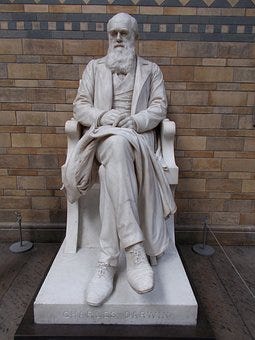
I have recently been reading Jean Hardy’s book A Psychology with a Soul which is about Roberto Assagioli’s system of Transpersonal Psychology, Psychosynthesis (1). In chapter 16, The Nature of Science in Psychology and Psychotherapy, she discusses philosopher of science Karl Popper’s ideas about open and closed systems of thinking . A closed system of thinking is one “that is so comprehensive that no happening in the world can disprove it. A Marxist would have his or her own interpretation for anything that occurred, just as the Freudian would have his or her own quite different one; whatever happened, each would leave the scene with his or her conceptual world intact” (p168).
Such persons are therefore impervious to any evidence which contradicts their worldview. Thus we see that preconceptions dictate the interpretation, whereas it should be obvious that evidence and observations lead to interpretation and theories. It seems, however, that for some people this is very hard to put into practice.
Hardy goes on to suggest that natural science is such a closed system, “that though a particular piece of evidence may be able to disprove a particular theory, the scientific way of conceiving the world persists: that underneath the modern framework of natural science there are also persistent, value-laden, hard-to-contact assumptions about the human situation”.
The scientific way of conceiving the world that she is talking about is the philosophy of materialism. This was expressed most forcefully, and in my opinion ridiculously, by the Harvard professor Richard Lewontin: “We take the side of science in spite of the patent absurdity of some of its constructs… in spite of the tolerance of the scientific community for unsubstantiated just-so stories, because we have a prior commitment, a commitment to materialism… Moreover, that materialism is absolute, for we cannot allow a Divine Foot in the door” (2).
He makes use of the term ‘just-so stories’, which is appropriate because they are something that Darwinism is often accused of using. Once the truth of Darwinian evolutionary theory is assumed, then it is always possible to come up with an explanation for anything without needing to prove it. The argument goes along these lines: some aspect of modern human psychology is described, which is followed by a statement like this: “There must have been some point in evolutionary history when…”
This ruse was exposed very clearly by the former senior palaeontologist at the Natural History Museum, Colin Patterson. When asked by a reader of his book Evolution why he had not included any direct illustrations of evolutionary transitions, he replied that none could be given with certainty: “It is easy enough to make up stories of how one form gave rise to another, and to find reasons why the stages should be favoured by natural selection. But such stories are not part of science, for there is no way of putting them to the test”.
Footnotes:
(1) Arkana, 1989
(2) New York Review of Books, “Billions and Billions of Demons”, 1997